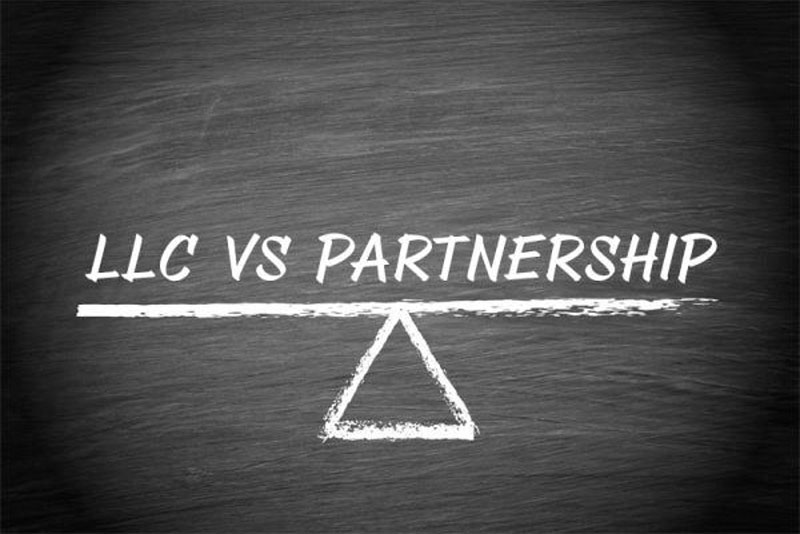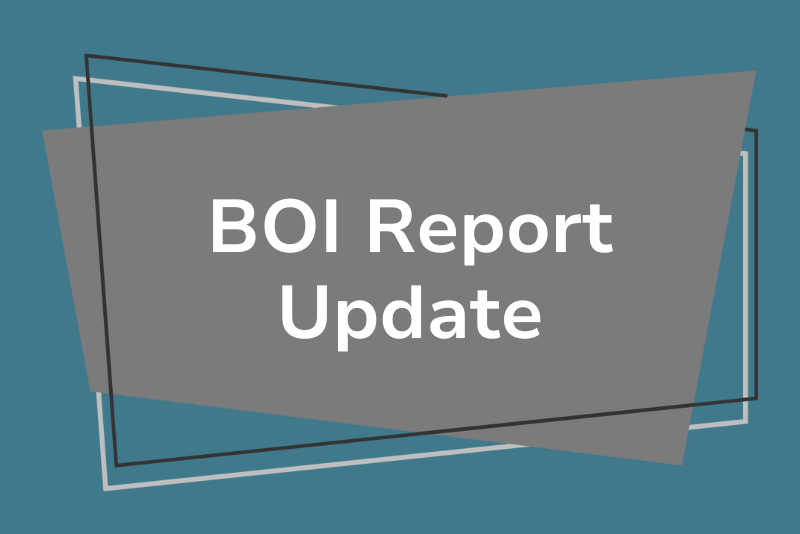The Launch Blog
The CorpNet blog offers expert advice for launching and operating your business. From start up information to ongoing compliance, the CorpNet team keeps you up to date!
Creating Your Own Business and Loving What You Do!
The entrepreneurs you read about or see on TV may seem like overnight successes—but in reality, creating your own business doesn’t happen overnight. Behind every successful business idea, months (or even years) of thought and planning have gone into launching it. After all, who wants to risk the money, time and effort required to start a new business on a mere whim? One of the keys to success is creating a business you’re excited about. Your passion will help you persist through all the obstacles. Here are three ideas for creating your own business and loving what you do. 1. Convert Your...
Best Practices For Interviewing Job Candidates
Hiring the right people requires a sure-fire interviewing process. To effectively interview job candidates, you need more than a little dedicated time and a list of questions; you need an understanding of how you can draw out the information you need about an individual’s knowledge and capabilities. You also need to tune into character nuances that might indicate how well a candidate will work with your team. And, of course, you need to do all of that without breaking any anti-discrimination laws. Interviewing can be intimidating, for not only prospective employees, but also for...
8 Payroll Mistakes That Can Hurt Your Small Business
All businesses, of any size, that hire employees must manage payroll. It’s a responsibility not to be taken lightly! Careful attention to accuracy and compliance with federal, state, and local laws for withholdings and deductions is imperative to avoid mistakes and steer clear of costly consequences. So, what are some common payroll mistakes businesses make? My list below will help you know what to watch out for as you process payroll for your employees. 1. Miscalculating Employees’ Pay This can happen for various reasons, such as tracking time inaccurately, not applying overtime rates...
LLC vs. C Corporation
Is it better to form a Limited Liability Company (LLC) or a C Corporation? Many entrepreneurs ask that question as they work through the many facets of transforming their dream of business ownership into a reality. The business structures have similarities and differences, as well as advantages and disadvantages, so it’s important to consider all of them when deciding on the right business entity type for your company. So, how do LLCs and Corporations compare? 1. State Registration Both LLCs and Corporations are formed by filing registration forms with the state. The paperwork required,...
Business Name Registration Or Trademark: Which Is Best?
One of the most valuable assets your business will ever have is its name. Your business name is more than what your company is called—it represents your brand’s identity and it’s a way for you to distinguish yourself from your competition. With your business name carrying that much weight, it makes sense to protect it. As you start your business, consider these two approaches to prevent other companies from using your name and confusing your customers: Business Name Registration If you form an LLC or apply to incorporate a business in a state, your business name is automatically protected...
What Comes After Incorporation? 12 Steps to Keep You On Track
Congratulations! You have officially registered your Limited Liability Company or Corporation with the state. But now what? What happens next? While forming an LLC or Corporation is a critical first step to operating a formal business entity, there's more work to do to keep it legitimate and in compliance. The tasks and filings vary depending on a company's growth objectives, type of business activities, and location. In this article, I talk about what comes after incorporation and I'll share some of the obligations that entrepreneurs must fulfill. However, keep in mind that your...
Can I Covert a Multi-Member LLC to a Single-Member LLC?
Ownership of Limited Liability Companies (LLCs) changes frequently for a variety of reasons. If you have a multi-member LLC, which has two or more members, and are looking to convert it to a single-member LLC, you’ll need to understand how the process works and what’s required to do so. In this article, I’ll walk you through the process of changing the ownership of your business from more than one person to a single owner. But first, let’s look at some issues you’ll need to consider. Considerations When Converting to a Single-Member LLC If you’re converting your business from a...
LLC vs. Partnership
If you’re considering a Limited Liability Company (LLC) or Partnership as your company’s business structure, you’ll have many considerations to think about. Choosing a business entity type has ramifications legally, administratively, and financially—all of which can potentially have a significant impact. Rushing to a decision when weighing the pros and cons of an LLC vs. Partnership and making a poor choice can have big consequence. It’s critical to review your options carefully. An LLC may be owned by just one person (single-member LLC) or by multiple owners (multi-member LLC). By the...
How to Start a Cleaning Business
If you're looking to start a cleaning business, there's plenty of opportunities to go around. In fact, the role of professional cleaning specialist is slated to be the fastest growing occupation for the next ten years. Whether you plan to buy an existing franchise cleaning service or go out on your on, there are a few things you need to take care of before you can start accepting clients. Get Licensed and Bonded - Whether you will be the sole cleaner of personal or commercial properties, or whether you plan to hire a team, you absolutely must be licensed and bonded. Your state may or may...
How Do I Maintain a Business?
After a business is up and running, it's critical to maintain it by fulfilling all of the required business compliance tasks on time. Of course, businesses grow and evolve over time, and therefore, the actions they must take to maintain a business entity also may change. Fortunately, CorpNet is here to help you learn how to manage your business effectively every step of the way. What are some of the business considerations entrepreneurs should keep in mind? Below, I’ve listed several situations where changes in a business will involve business compliance filings. 1. Hiring employees...
As a Business Owner, Can I Have Multiple LLCs?
Once entrepreneurs taste what it's like to be their own boss and carve their own career path, some decide to pursue starting multiple businesses. Depending on the situation, owning multiple Limited Liability Companies (LLCs) might make sense. Which leads to the question, how many LLCs can someone have? The short answer is there are no particular limits on how many LLCs someone may form, provided they meet all of the eligibility criteria to be an LLC member and comply with all of the federal, state, and local government rules and regulations for operating an LLC. In this article, I’m going...
What is a Profit Share Agreement?
A profit share agreement, sometimes called a profit share contract, is an important legal contract between two or more parties, such as individual business partners, businesses, employers and employees, or investors and entrepreneurs. A profit share agreement is particularly important when two parties agree to undertake a joint venture as partners without creating a formal business entity, such as a C Corporation or Limited Liability Company (LLC). The agreement states how profits generated through a shared effort or project will be divided. It also details the responsibilities of each...
Sole Proprietorship vs. LLC
Sole Proprietorships and Limited Liability Companies (LLCs) are popular business entities for entrepreneurs. If you’re thinking about starting a business, you might be wondering which of these entities would be a better choice. Let’s look at how Sole Proprietorships and LLCs operate and consider some of the advantages and disadvantages of each business type to help you decide which is right for you. Highlights of the Two Business Structures When an individual (or married couple) starts a business, it is, by default, considered a Sole Proprietorship. Operating as a sole proprietorship...
Is it Safe to Operate Multiple Businesses Under a Single LLC?
If you own multiple businesses, you might be wondering if it is safe to operate them under the same LLC. Although it’s possible, this approach has a potentially significant downside. If someone sues one business, not only will that business’s assets be at risk but so will the other businesses’ assets. When someone runs several companies under the same LLC, those companies are not separate legal entities. Therefore, each is liable for the others’ debts and legal issues. Unlike a Sole Proprietorship or General Partnership, an Limited Liability Company is a separate legal entity from its...
How to Start a Construction Business
So you've decided to start a business in construction. Congrats! Despite the ebbs and flows of the real estate industry, there will always be work for you. While you may have the basics of your business, such as who to hire and what to call your company, here are ten things you may not have considered. Apply for Permits - Construction is a highly regulated industry, and to become a licensed construction provider, you'll need to apply for a few building licenses and permits. Because you're involved in so many areas when constructing a building, you may need permits for electrical,...
C Corporation vs. S Corporation
If you have your sights set on incorporating your business, you may be wondering if a C Corporation or S Corporation is the better option. While both are popular choices, nuances exist that may make one or the other more advantageous for your situation. The business structure you choose will affect your company in many ways, including the legal and financial aspects. That’s why it’s critical to do some research and ask for guidance from an attorney and accountant or tax professional when deciding. In this article, I’ll compare the C Corporation vs. the S Corporation. This review will help...
How to Choose the Best State to Incorporate a Business
Besides the questions of when and how to start a company, many entrepreneurs want to know where to incorporate a business. Each state has its own business laws and tax codes, so deciding where to form an LLC or a corporation should not be taken lightly. I recently talked about this important topic in a webinar for accounting professionals hosted by CPA Academy. I want to share that information with you, too. It’s valuable food for thought whether you’re advising clients on their entrepreneurial journey or starting your own business. Considerations When Choosing a Business Structure Before...
How to Transfer Business Ownership
If you’re considering retiring, looking for a new venture, or bringing a partner into your business, you may be wondering about the process of transferring business ownership. There are various ways to sell part or all of a business, and regulations you’ll need to adhere to as you move forward. Hopefully, you have instructions for the process outlined in the Bylaws or Shareholder’s Agreement created for your Corporation, or in the Operating Agreement of your Limited Liability Company (LLC). Whether your business is a Sole Proprietorship, Partnership, LLC, or Corporation, take care to...
Compliance Requirements for Hiring Remote Employees in Other States
Hiring remote workers as part of your team comes with a lot of advantages for both employers and employees. Employers who hire remote workers get access to a much larger pool of qualified employees than those who require in-person work. Instead of attracting applicants who live near your workplace, you can pick your hires from across the country, or even internationally. Studies have shown that employees who work remotely are more satisfied with their work situation and more productive than in-office workers. And employers save money by not having to maintain expensive office space. But...
Can I Set Up an LLC in Another State?
Yes, it is possible to set up a Limited Liability Company (LLC) in another state, and there are two possible scenarios for doing so: Form an LLC in a state different from where the business owner lives and works. Register an existing LLC formed in one state to conduct business in another state (a process called foreign qualification). An LLC is called a domestic LLC in the state where it was formed—i.e. where its owners (members) filed the entity’s formation paperwork. When an existing LLC’s members apply for foreign qualification to conduct business in one or more other states, the LLC...
What is a Series LLC?
The Series LLC is also known as a Series Limited Liability Company or SLLC for short. It allows multiple Limited Liability Companies (LLCs) within a master LLC to operate as separate entities with their own names, bank accounts, and record keeping. Each series can conduct business independently in this way because the series LLCs’ articles of formation explicitly allow them to have unrestricted segregation of membership interests, assets, liabilities, and operations. Different members and managers might run each series, and their rights and responsibilities might vary from series to...
CorpNet Awarded Inc. Pacific Regionals for 2025
CorpNet is proud to announce that it has made Inc.’s prestigious Inc. Regionals Pacific list in 2025 as one of the fastest-growing private companies in the country. This is the fourth year CorpNet has been honored in the regional awards. CorpNet's Inc. profile can be found at https://www.inc.com/profile/corpnet-.com. “I am beyond proud that CorpNet has been recognized by Inc. on their prestigious Regionals Pacific list for 2025. This is a true testament to the hard work, dedication, and passion of our incredible team. My husband, Phil, and I have always believed in continuous growth and...
The What, Why, and How of Incorporating Out-of-State
A lot of entrepreneurs wonder what state should be used to incorporate a new business. Should it be their own state or maybe another state like Delaware or Nevada? There is no easy answer to that question, however, there are definite benefits for some businesses to incorporate in states other than where they conduct business. Let’s look at some examples of why you might incorporate out-of-state and then we'll review a few situations that will require you to register a foreign qualification. Why People Consider Incorporating Out-of-State Many people choose to incorporate their businesses...
How to Avoid Double Taxation By Using an LLC or S Corporation
There are a whole host of reasons to incorporate as a C Corporation and it is the preferred entity type if you intend on seeking VC funding or taking the company public. However, forming a C Corporation involves more paperwork, legal fine print, and potential double taxation. In today's article, we'll review how you can utilize an S Corporation or LLC to avoid double taxation. Understanding the Pitfalls of Double Taxation From a legal stance, a C Corporation is a separate entity that can sue and be sued. When it comes to taxes, a C Corporation is a separate taxpayer that files its own...
How to Start a Business in the USA as a Foreigner
The United States an ideal location for foreigners to start a business and capture that elusive American dream pushed so hard by the media and social media. It’s no wonder many international entrepreneurs dream about starting a business in the USA. Nonresidents can take advantage of the lower tax rates, enhanced legal protections, and a very strong economy. Neither citizenship nor residency is required to start a small business in the United States and the formation process is a lot easier than one might expect. Let's walk through the formation process and provide a checklist to get you...
Can You Have Multiple Businesses Under One LLC?
The short answer is, yes, you can operate multiple businesses under one LLC. However, before you jump in, you have multiple options to consider. The route you choose can impact you in several ways (including your liability and tax obligations), so it's critical to do your homework and weigh the pros and cons. Options for Operating Multiple Businesses Let’s take a look at three popular ways to structure multiple businesses and explore how each scenario works. 1. Use One LLC to Run Both Businesses One common approach involves having one Limited Liability Company (usually named for the...
Low Stress Options to Finance Your Business
Today’s business owners have more options for business financing than ever before. But some methods to finance your business may cause you to toss and turn at night more than others. Of course, stress can be subjective. One person’s definition of stress may be different from another’s. But this list can help you sort through the different ways to finance your business that are less likely to cause you stress or at least allow you to choose what you consider to be low stress. Here are some lower-stress financing options for your small business. Apply for Working Capital Loans Working...
Can I Use a Home Address for My LLC?
It is legal to use your home address for your LLC, C Corporation, or other business entity. You do need a physical address to register a business, but many sole proprietors and various types of professional services businesses don’t have a separate business location and they don't need one. When they decide to incorporate or form an LLC, they see using a home business address as a simple solution. Does this lack of address impact the business negatively? Do you need a physical address for your business? Is it legal to use your home address for business activities? And if you use a home...
All Domestic Business Entities Now Exempt from BOI Reporting
In a press release issued late in the day on March 21, 2025, the Financial Crimes Enforcement Network (FinCEN) announced an “interim final rule that removes the requirement for U.S. companies and U.S. persons to report beneficial ownership information (BOI) to FinCEN under the Corporate Transparency Act.” This announcement is the latest in a series of twists and turns concerning the controversial compliance requirement introduced to help detect and prevent crimes such as money laundering, tax fraud, financing terrorism, and other illegal activities. New “Reporting Company” Definition...
What is Payroll?
Payroll refers to the various tasks and responsibilities businesses must perform to pay their employees accurately and on time. It encompasses calculating wages and salaries; preparing checks or paying employees via direct deposit; withholding taxes and other deductions from employees’ pay; reporting and paying taxes to the appropriate federal, state, and local agencies; and more. Businesses must handle payroll correctly because it impacts their net income and can result in additional fines, fees, and penalties if not managed according to federal, state, and local rules. Because payroll...





























